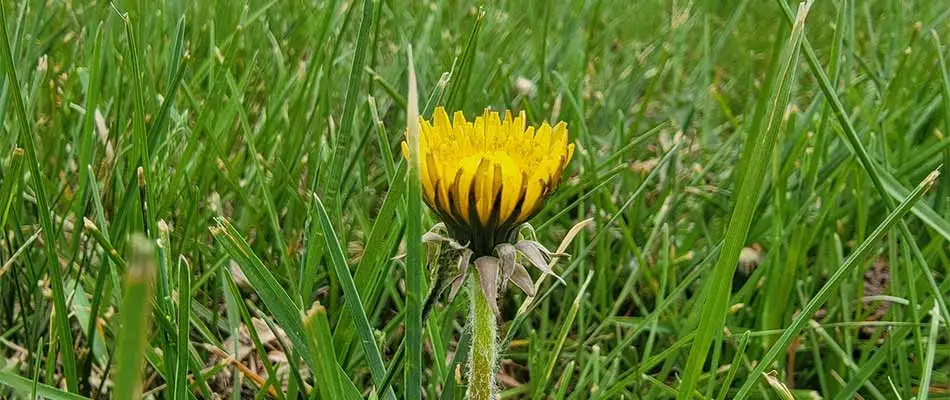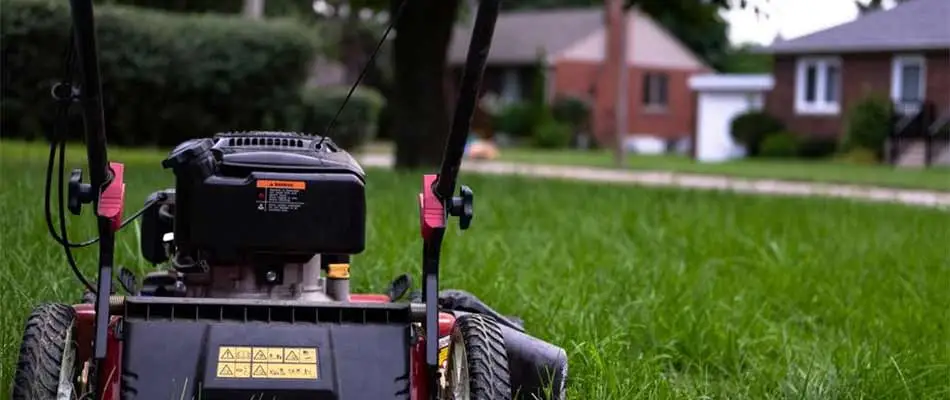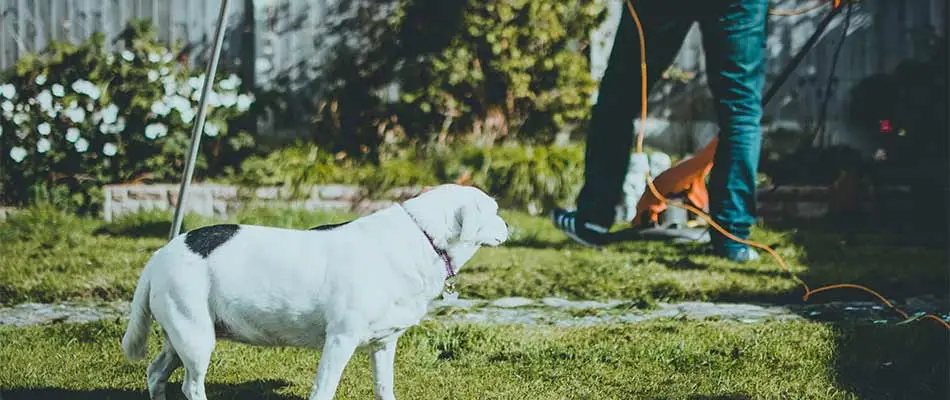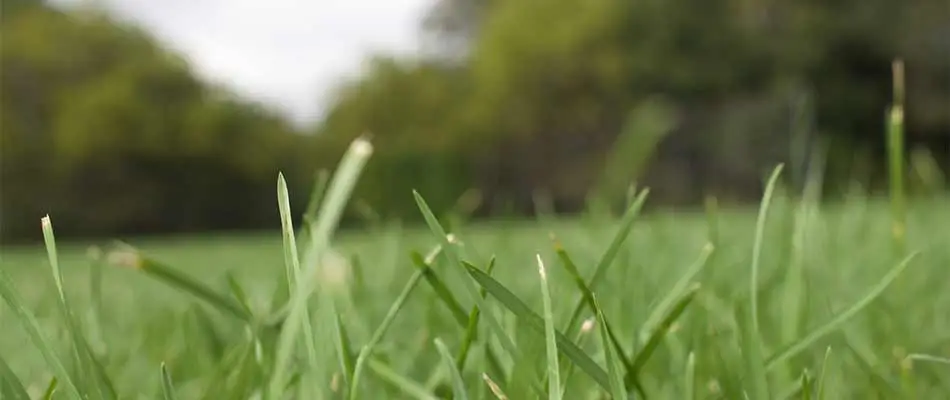For people, summer is a great season. There’s a lot of sunshine and nice weather. Kids are out of school and free to play and explore all day. Families head out to the pool and other swimming destinations. The long days and pleasant evenings are perfect for backyard barbecues and entertaining. And so on. It’s no wonder that for a lot of people, summer is their favorite season.
For grass, summer isn’t so great. In fact, if grass could talk, it would tell you that summer’s its least favorite season. That same great weather you’re enjoying is tough on your grass. During the summer, growth slows dramatically as grass conserves resources to withstand heat and drought.
You can take measures to counter the dry conditions, and although you can’t counter the heat, you can provide some boosts to help it endure the hot temperatures. And in fact, your grass can talk; it has ways of telling the trained eye that it could use some help.
Let’s look at how you can help your lawn out during the summer. We’ll break summer into three mini-seasons: early summer, mid-summer, and late summer.
Early Summer
In early summer your lawn care will center mainly around nourishment and prevention.

- Mow high and leave the clippings. It can be tempting to cut your grass low so you’ll have to do less mowing, but a likely result of that is having less grass. When the grass is too low, the hot sun can cause a lot of damage, weakening and killing grass and leaving it vulnerable to takeover by weeds or insect pests. Taller grass promotes deeper root growth, retains moisture better, and provides more shade for the roots and soil. The proper height (typically 3-4 inches for our cool-season grasses) depends on the grass type, and if you’re not sure, take a grass sample to a local gardening center or consult a lawn-care professional. Leaving the clippings, as long as the grass wasn’t excessively high before mowing, is a free and easy way to give your grass some fertilizer.
- Weed control. Spring pre-emergent herbicides are good at preventing weeds like crabgrass from germinating, but they don’t kill weeds like dandelions that tend to appear later. In the summer, weed control consists of spot treatments that target individual weeds or patches of them. Take care not to spray nearby plants and grass that you want to keep, as these herbicides will kill them as well. Another approach is digging up the entire plant by hand, but that can be time-consuming, and it’s only effective if you get the entire root system, making mowing and pulling largely useless since the weed will grow right back. Some lawn-care companies provide weed control as part of their service packages.
- Pest control. One of the biggest threats to a lawn comes from grubs, which live in the soil and munch on grass roots. Other pests you and your lawn could do without are ticks and biting ants, among others. Identifying and treating areas affected by insect pests can be tricky, though, because the symptoms often resemble drought symptoms (brown, thin, or bare patches), meaning people sometimes take the wrong approach because they’ve identified the wrong problem. You also want to be careful about what and how you’re targeting since not all insects are harmful and some, like praying mantises, are actually helpful. Like weed control, pest control is something a lot of lawn-care services include in their treatment plans, and these experts will also be able to identify signs that there’s a pest problem. In addition, they’ll know how to confirm and how to proceed from there. With both weeds and insect pests, don’t wait; address any problems while they’re still small.
- Feed the grass. Fertilizer works best for our cool-season grasses in the spring and fall, but it’s possible to fertilize in the summer as well in order to provide a timely boost during the hot season. Consult with a lawn-care service about a fertilizer specially formulated for summer.
- Water heavily so that moisture gets deep into the soil. This doesn’t mean let the sprinklers run all day long. Later in this article, there will be a section on watering tips.
Mid-Summer

If early summer is mostly about nourishment and prevention, mid-summer is mostly about maintaining what you’ve got growing so that it stays healthy and strong.
- Continue fertilizing as necessary. A good lawn-care service will put your lawn on a schedule so that it gets the nutrients it needs while you don’t have to worry about it.
- Keep up the watering. Watering is one of the things you have the most control over, so make sure you’re continuing to water deeply and effectively.
- Maintain high grass length and sharp blades. Dull mower blades can damage grass blades, and ragged grass blades lose more moisture than cleanly cut blades do. As much as possible, mow on cooler days; even if you’re mowing to the proper height, the haircut you’re giving your grass is still making the soil and roots beneath more exposed to the hot sun, so avoiding mowing on hot days adds a little extra TLC for your lawn.
Late Summer

Since watering is such a critical part of summer lawn care and something you can directly influence, we think a section on watering tips is in order.
First, understand that although a general rule of thumb is 1 inch of water a week penetrating to about 6 inches, the amounts can vary based on the region and on local conditions. It’s always a good idea to contact a local professional to help you determine the right watering schedule for your lawn.
- Water deeply and infrequently. Watering heavily several times a day oversaturates a lawn and wastes water (and makes your water bill higher). Going with lighter amounts but still several times a day isn’t effective because it’s not enough to penetrate deeply and a lot of the water just evaporates. The best approach is to water deeply once or twice a week.
- Test soil moisture. A DIY way to determine if the watering amounts are right is to stick a screwdriver blade into the soil to the recommended depth. If that’s harder to do than it should be, the soil is too dry, and if it’s too easy, the soil is too moist.
- Water early in the day. You might not want to get up early on a summer morning, but it’s the best time to water grass because water has time to soak in before things heat up and evaporation sets in. Many people like to water late in the day or at night, but this can lead to overwatering and can encourage the growth of mold and other funguses that can cause damage to a lawn. It might also create areas of standing water that will attract mosquitoes.
- Use an automated irrigation system. Don’t want to get up early to water? Have better things to do? With an automated irrigation system, you can set a schedule and not have to worry about it. Just remember to adjust based on conditions and to make sure equipment is in proper working order.
- Adjust for recent weather. If it’s been especially rainy recently, you may need to water less or not at all. On the other hand, if it’s been unusually dry, you may have to increase the watering. In the latter case, make sure to abide by any drought-related watering restrictions in your community.
- Watch for areas that may be getting too much water and adjust accordingly.
Free Yourself to Enjoy Your Summer

Summer is such a great time to enjoy the outdoors, and for most people, lawn care isn’t one of their preferred ways to do that. Mowing is especially unappealing because it can be such a hot and sweaty job.
Also, as you’ve seen, summer lawn care isn’t as simple as putting on a hat and sunglasses and pushing a mower once a week. With all the cutting, fertilizing, watering, and other concerns, it’s a pretty big task, and one that leads to messy, expensive consequences if neglected or not done properly.
Sharp Lawn Care, an industry leader in the Sioux City and Sioux Falls regions, can help you enjoy your summer the way you want to while having the peace of mind coming from knowing your lawn is in the best of hands. Call (712) 253-8024 to schedule your lawn or pest services today.




Comments (0)
Thanks for your comment!
Thanks for your feedback! Your comments have been successfully submitted! Please note, all comments require admin approval prior to display.
Error submitting comment!
There is a problem with your comment, please see below and try again.